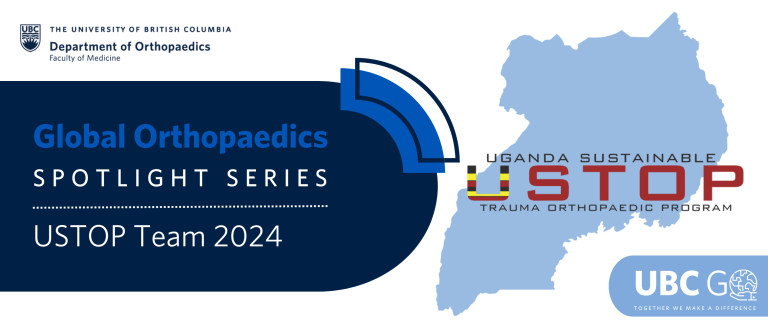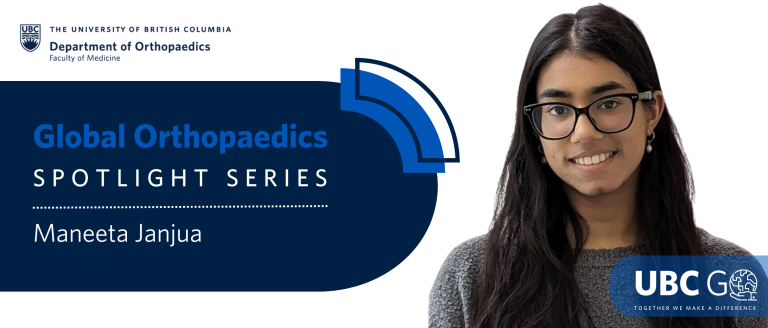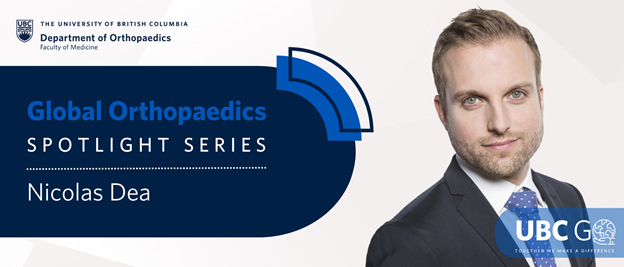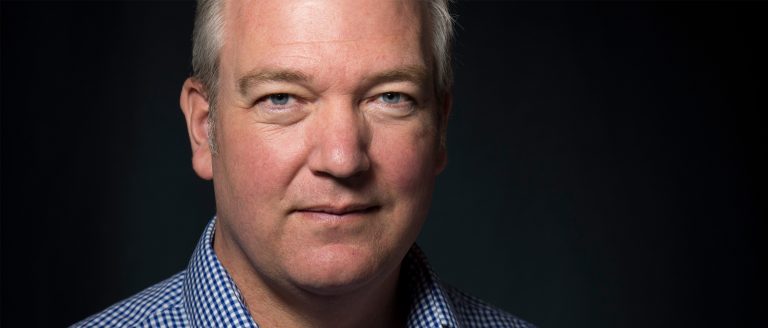Our UBC Global Orthopaedics (UBC GO) Spotlight series features in-depth conversations with a UBC Department of Orthopaedics member about their involvement in global orthopaedic initiatives.
In this next spotlight, we learn about UBC Head of the Orthopaedic Spine Surgery Division and Clinical Associate Professor, Nicolas Dea.
Dr. Nicolas Dea’s long held interest in global health led him to participate in the USTOP trip (Uganda Sustainability Trauma Orthopaedic Program) in 2014. As the sole spine surgeon on the team, Dr. Dea brought his expertise in academia to bear on the mission’s objectives. During his time in Uganda, he dedicated himself to teaching sessions, conducting patient rounds and performing surgical interventions alongside the resident team. His tireless efforts played a pivotal role in fostering the sustainability of the initiative in Uganda, ensuring lasting impact and effectiveness within the local healthcare system. For more information on the USTOP initiative and Dr. Nicolas Dea’s invaluable contributions in Uganda, explore further.
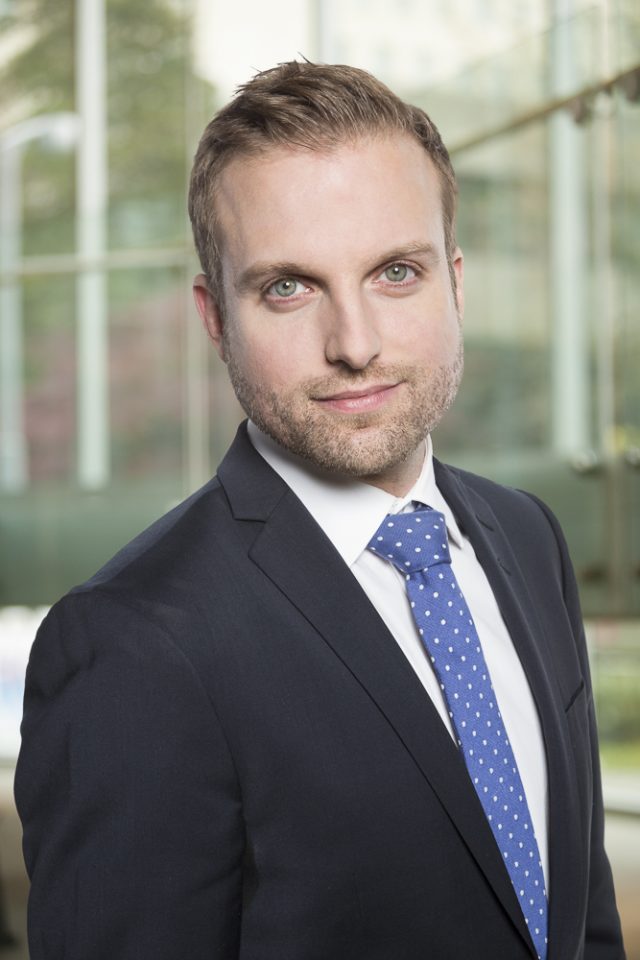
NICOLAS DEA
Project/Initiative:
USTOP
What inspired your interest in global health/surgery/orthopaedics?
I’ve always been interested in global health, but unfortunately, life moves quickly, and I’ve only had the opportunity to make it out on one trip which was USTOP (Uganda Sustainable Trauma Orthopaedic Program). When I discovered the USTOP trip, I realized I could tag along with a team that already had resources and momentum, which seemed more feasible than organizing a trip alone. It was a perfect opportunity to try something new, especially since I got to work on a spine-related project. Unfortunately, it remains my only experience so far, nearly a decade ago—in 2014.
What did you do?
During the USTOP trip, I found myself amidst a cohort of trauma-focused surgeons. I was the only spine surgeon on the team. Uncertain about the most effective approach to make a meaningful impact, I took the initiative to meet with a spine surgeon, occupational therapist, physiotherapist, and resident at the site in Uganda.
Given my extensive involvement in academia and numerous presentations on diverse topics, I dedicated the initial two hours of each morning to delivering presentations and facilitating discussions on subjects of interest to the team. Initially met with low attendance and participation, these sessions gained momentum by the second week, with everyone actively engaged and enthusiastic about the tailored teaching sessions.
In the afternoons, I found the exchange of knowledge particularly enriching as they imparted valuable insights into their practices. We engaged in a reciprocal sharing of approaches, with me offering techniques while also learning from theirs. I prioritized understanding their methodologies rather than immediately delving into complex surgeries, providing them with practical tips and strategies. The only instance I conducted surgery independently was in response to a critical situation when the head surgeon’s wife sustained a neck injury in a scooter accident.
The majority of the trip was dedicated to educational activities such as teaching sessions, lectures, patient rounds, surgical interventions with the team of residents, and clinic attendance. This holistic approach proved stimulating and, I believe, was well-received by the team.
Where did you find the funding?
I personally financed the trip, covering all expenses from my own resources. Given my role as an attending surgeon, departmental funds were unavailable for such endeavors. To ensure cost-effectiveness, we chose modest accommodations in Kampala and organized our own flights. Fortunately, certain provisions, like a local driver and a host for assistance during our stay, were provided at no additional cost.
One thing we’re probing and looking into is sustainability. Do you think your projects were able to achieve sustainability?
I believe sustainability was indeed achieved and should continue to be the primary objective. Many groups visit sub-Saharan Africa to perform numerous surgeries using imported implants and resources. However, once they depart, little lasting impact remains. True sustainability involves nurturing local resources and expertise. Simply conducting surgeries without empowering local professionals to continue the work afterward holds limited value in my perspective.
Looking back, what do you think were the key insights and main barriers that you faced?
My first experience in Uganda brought to light significant cultural differences. Unlike the routine I’m accustomed to, where my residents are reliably present at 5:30am each morning, prepared for teaching by 6:00am, the situation in Uganda presented a stark contrast. Despite my initial eagerness to offer daily teaching sessions, few attendees showed up. This prompted me to realize the importance of understanding their context, operational methods, and effectively rallying the team around my contributions.
It became evident that rather than expecting them to conform to my routine, it was imperative for me to adjust to theirs and foster effective communication. Understanding their motivations, the significance they placed on our annual visits, what they got from previous interactions, and their expectations for the present engagement became crucial. Such an approach ensured a mutually beneficial experience.
While personal interest in global health undoubtedly exists, the overarching goal transcends self-fulfillment. It entails making meaningful contributions to the communities we visit. Recognizing and aligning with their priorities increases the impact of our visits. True fulfillment stems from the acknowledgment that our endeavors are genuinely appreciated and are creating tangible changes.
Are you working on any projects right now? What are your future plans/implications?
I’m currently not engaged in any global orthopedics projects. While my focus as a spine surgeon at VGH spans various areas, none of them directly pertain to global orthopedics. However, some members of the department, such as Peter Wing or Scott Paquette, are actively involved in initiatives like SpiNepal. I would however be very interested in repeating this experience and being part of a future visit.



